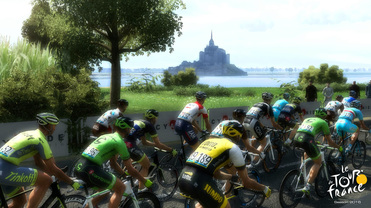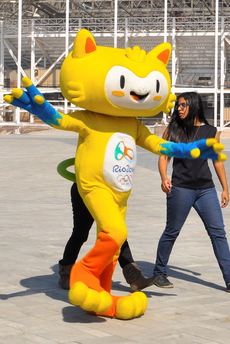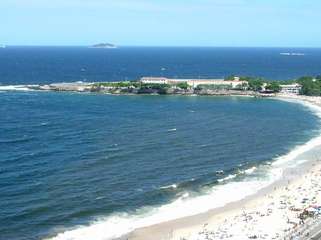|
Today's Tour de France stage saw Greg Van Avermaet, BMC, ride into Le Lorian solo and more than five minutes ahead of the next competitor Thomas De Gendt, Lotto. It was a difficult day for the peloton as they rode the mountains of the Massive Central. The day was hot, the tarmac was melting, the distance was over 216 km and there were six peaks to conquer. The run to the finish line was uphill but wasn't given a category. Riders were in the saddle for about five and a half hours. Two crashes occurred in the day's final descent. Serge Pauwels and Cyril Gautier were in the second break and descending a tricky patch when they both hit the pavement. They continued with their ride, but did not place in the top five cyclists. Alberto Contador, Tinkoff, is having a bad start to the Tour. He crashed twice early in the race and sports a large bandage on his right arm. The TV commentators have speculated that he is more injured than he wants the public to know. Competitors have been known to continue in the TDF with broken bones. Stage 5 Standings
The World Anti Doping Agency(WADA) is now in possession of 200 bags of blood that were seized when a doping scandal broke in 2006 in Spain. WADA may try to identify whose blood has been stored. The time limit for imposing any bans has passed as the limit is ten years. It would still be interesting to know who had blood stored for reintroduction before a big competition. Blood that has been stored and transfused increases the number of oxygen carrying cells and increases the body's endurance. Further reading: Le Tour Velo News
0 Comments
 Peter Sagan, Tinkoff, garnered both the yellow jersey as the race leader in today's steep uphill finish and the green jersey for most sprint points. As with Cavendish, this will be the first time that Sagan gets to don the yellow. Today's route hugged the Normandy coastline from Saint-Lo to Cherbourg-en-Cotenlin, a distance of 183 km. It had categoried climbs with a steep climb -- 14% -- to the finish line. Rain and wind played their part as well. Alberto Contador had another spill today reinjuring him. He was not a happy biker but remained philosophical about events. The 60 km mark of the route also saw three others take a tumble. Those who fell yesterday in the melee near the finish line rode today. Four riders went off the front of the peloton early and maintained the gap for most of the day, but victory was not to be theirs. The last of the breakaway was swept up and passed with only 500 metres to the finish line. While Jasper Stuyven, Trek, lost his chance at a stage win, he will ride with the red number tomorrow. Stage 2 finish:
Tomorrow's stage from Granvilleto Angers will be a 223.5 slog. The profile looks like it will be another exciting sprint finish. More details and stats can be found at the official Le Tour site  Games mascot Games mascot Cheaters, bribes, disease and crime seem to be elbowing the athletes for Olympics 2016 out of the spotlight. Unconfirmed reports have come in that two N. Korean runners took a short cut in the marathon to decide who would qualify for the Olympics. Cheaters are still being outed from the Russian winter games in Sochi. The murky world of the Russian drug testing labs has seen two directors die suddenly and a third director apologizing for the lapse. Kenya is another country with sketchy testing for performance enhancing drugs. The World Anti Doping Agency(WADA) has declared the country non-compliant. Yet the Kenyan athletes are still allowed to compete at the Rio Olympics. They will be on a watch list. But not all is cheating with performance enhancing drugs. Both Australia and the IOC are set to distribute a half million condoms for the athletes who stay in the village. The Aussies will supply Zika-proof condoms which come lubricated with an anti-viral substance. The IOC is set to distribute free of charge, 100 000 female and 350 000 male condoms. It makes this writer wonder if the athletes will be too tired to compete during the medal rounds. Whether Brazil will be ready to host the first ever southern hemisphere Olympics remain a question. Adding to the country’s complications is the political turmoil. The president Dilma Rousseff, has been kicked out of the presidential palace in Brazilia while the vice-president has taken over. She has been ousted while an impeachment action is taking place. The country seems divided over this and massive street demonstrations grab the headlines. The unexpected drop in oil products has left the country in a bad economic way. Added to that is an investigation as to where about two billion dollars in oil revenues went. This has meant that money originally earmarked for Olympic venues and added security has had to be cut by $600 million. A spectacular bike/pedestrian pathway recently collapsed into the ocean killing a couple of unfortunate walkers. Budget cuts have seen the contracts cut on the tennis and equestrian venues cancelled. The sewage problems remain, the subway will probably be incomplete by August 5, opening day. Once this year’s games are done and the medals put away, the organizers in Japan can start their hoopla. Front and centre this week was the suspicious $2.6 million paid during the Japanese bid for the games. The Japanese have stated that they will cooperate completely to solve the mystery payment. Sources: CBC News The Guardian Global News  Time is running out Time is running out A bike path constructed as part of the heritage building for the Brazil 2016 Olympics has failed after less than four months, taking at least two lives. The structure is part of an interconnecting system of bike and walking paths that allow the residents of Sao Conrado to traverse the city without having to interact with motorized traffic. The path was built high above the beach area facing the Atlantic Ocean. It was touted as the “most beautiful bike path in the world”. Yesterday a whole section of the 3.9km path fell to the beach when a rogue wave hit it. It was reported that large waves were rolling in from the ocean and hitting the cliffs. A witness to the failure of the pathway reported that a particularly large wave lifted a section and it fell taking five people with it. One person was rescued. Two bodies were recovered and two are still missing. Photographs of the failed section show a complete section gone. There are no remnants or rebar hanging. The connector to Olympic venues cost the Brazilian taxpayers nearly USD$13 million. “I almost died,” Guilherme Miranda told the Globo newspaper. “Where’s the mayor, where’s the engineer who did this work? It’s appalling to see people dying in front of you. Someone has to give a response for that 45 million [reais]. It just opened and is already cracked in several places.” The Guardian The preparations for the Rio games have received a great deal of criticism. The cycling match to test out the new velodrome has had to be cancelled because the facility is still not finished. Other facilities have been cut back or eliminated causing the IOC to make statements of concern. Those facilities may lack sufficient electricity if the supply is not assured soon. The water sports have had a great deal of publicity because of the stinky condition of the venues. Much of the sewage and garbage for the host city is disposed of directly into ditches and waterways. This year’s Olympics are the first awarded to a country south of the Equator. When Brazil was awarded the sports extravaganza their economy was surging ahead and the political situation seemed stable. Times have changed. Plummeting oil prices have hit their economy, corruption has siphoned off billions and the president has just faced a hostile government coalition that has voted to impeach her. Sources: The Guardian UK Cycling News This last summer Erik Heil, Germany, participated in an Olympic test event in Guanabara Bay and contracted a flesh eating disease. He spent some painful time in a German hospital having the dead flesh scraped off his hips and legs.
Other athletes participating in the summer exercise came down with various ailments at a rate double that normally encountered. No count was kept of those who fell ill within two weeks of returning to their home countries. An expert in viral infections from Texas Health Center, Houston, Kristina Mena has stated that as little as three teaspoons of the Bay’s water ingested gives the athletes a 99% chance of being infected with a virus. The famous and scenic Copacabana Beach is dangerously polluted. Some of the water sports that will be held in the microbe laden waters:
“We’re talking about an extreme environment, where the pollution is so high that exposure is imminent and the chance of infection very likely.” The Guardian If any of the more than 10 000 athletes expected in the Brazilian city this August should fall ill with gastrointestinal or worse problems, they probably won’t find much comfort in their accommodations. As a cost saving measure it has been decided to not air condition the bedrooms of the athletes. Temperatures in August hover in the 35 degree Celsius range(95 Fahrenheit). In fact, electricity may be in short supply as a firm contract with the private electrical company has not been signed. The venue may have to depend on generator power. Sources: The guardian Lonely Planet Rio de Janeiro City Guide CBC |
Barbara McPherson
Blogger, gardener, farmer. Working toward food security and a 30 foot
diet. Addicted to reading. Love this planet, especially my little corner
on Vancouver Island, Canada Archives
October 2016
Categories
All
|


